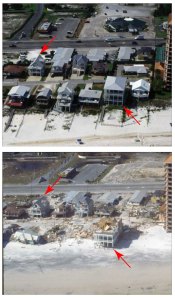In what reads more like a Stuff White People Like post than the usual commentary on humanitarian aid, Michael Bear tells us how to sound like a expert on the “poverty-stricken, war-torn country of your choice.”
1. Memorize the names of various tribes and semi-obscure towns. Ask questions like: “But what do the [insert name of random tribal group] think?” Or “What about the situation in [semi-obscure town]?”
Both of which are best said with a thoughtful expression, verging on concerned. There’s nothing like seeming to agree with your interlocutor while subtly pointing out that his or her analysis is rather facile for ignoring said tribe or district.
2. Memorize the date of one significant or semi-significant event in the country’s history. Tie all current political and / or military developments back to that date: “You make an interesting point about Liberian politics, but it’s all really just an outgrowth of what happened on September 9th, 1990.”
Don’t deign to explain further; instead, act as tho of course everyone should know what happened in Liberia on September 9th, 1990.
3. Acronyms, acronyms, acronyms. Saying you dislike the Sudanese Government is one thing, but doesn’t really separate you from the crowd. Saying you dislike the NCP is better. Extra points if you can work NCP, SPLM, GNU and HAC into one semi-coherent sentence.
First, I’m nearly positive I had a conversation with someone last night who somehow managed to read this post before it was written. We were talking about the most recent ethnic group from Burma to be granted refugee status (both of us having some organizational contact with refugees more broadly) and I swear he was following this formula (and Tip #1 quite well). Suddenly that whole conversation makes more sense. I feel enlightened.
But more substantively, it strikes me that this would more or less work for lots and lots of topics.
Nothing says “I know school reform” like talking about the synergistic momentum that NLNS, KIPP and TFA are creating (Tip #3).
And how many times, in talking to folks younger than forty about the devastation of Hurricane Katrina did someone say, “Gosh, this is just like 1965.” Good grief folks, call it Hurricane Betsy and actually know a little something. Yes, the levees failed both times, but there is a hell of a difference between 76 deaths and 1,836 (Tip #2).
Anyway. My plan moving forward: follow up conversations like the one last night with a “Great to talk with you” email. And a link.
Jonas

 I’m tired, TIRED of hearing well-intentioned, well-educated, climate-change-believing folks say–four years later–that New Orleans and waterfront Biloxi shouldn’t be rebuilt. I’m not tired of the conversation at the meta-level–in fact, I think it’s one we should be having more often and more rigorously. But I am tired of the way in which it’s always framed–as if individual people should recognize that Katrina #2 is inevitable and voluntarily relocate elsewhere.
I’m tired, TIRED of hearing well-intentioned, well-educated, climate-change-believing folks say–four years later–that New Orleans and waterfront Biloxi shouldn’t be rebuilt. I’m not tired of the conversation at the meta-level–in fact, I think it’s one we should be having more often and more rigorously. But I am tired of the way in which it’s always framed–as if individual people should recognize that Katrina #2 is inevitable and voluntarily relocate elsewhere.